
Jang Yeong-jin calls his home country of North Korea “one huge prison without bars.”
Life there was so insular, he says, that it wasn’t until problems with his marriage caused him to defect to South Korea that he even realized he was gay.
In the so-called Democratic People’s Republic of Korea, he didn’t even have a frame of reference for what “gay” means.
“I was too embarrassed [at first] to confess that I [defected] because I felt no sexual attraction to my wife… I couldn’t explain what it was that bothered me so much,” he told the New York Times in June.
How about we take this to the next level?
Our newsletter is like a refreshing cocktail (or mocktail) of LGBTQ+ entertainment and pop culture, served up with a side of eye-candy.
In an interview with the European Alliance for Human Rights in North Korea, Jang sheds light on what it’s like for LGBT people in North Korea, and the problems he still faces living in South Korea:
What did you know about homosexuality growing up in North Korea?
North Korea is a communist system. It’s a closed society. You don’t know how the world goes around. I considered my homosexuality as a pathological condition. . But [it] is a tragedy to live without knowing that you are gay.
What’s life like for gay people in North Korea?
As there is no concept of homosexuality, there is no awareness of the issue. In open societies, people have at least a consciousness of different sexualities, in North Korea there is no hope.
In the DPRK men spend a long time in the military, physical contact is frequent between the same sex and they experience special emotional bonds. This isn’t to say that all these men are gay, but rather, they are tied by a special comradeship.
Michael Kirby, author of a UN report into human rights in the DPRK, is an openly gay man. After the publication of his report, the Korean Central News Agency published an article that contained many homophobic slurs aimed at him. How do you feel about this?
They are morons. North Korea does not see LGBT rights in the right light yet.
But things may change. For example, North Korea used to criticise America that the women there participate in wrestling games. Now, women in North Korea also do wrestling. In that sense, history flows slow in North Korean society.
You were “outed” by a South Korean newspaper. Do you feel pressured to speak as a gay rights activist?
The LGBT rights movement in South Korea is highly politicised, and many LGBT groups in South Korea have tried to recruit me. However, if I succeed as a writer, I will have greater influence and will be able to have an independent voice [on this issue].
South Korea recently came under criticism when Seoul’s police force recently tried to ban the Korea queer culture festival. How do LGBT rights in South Korea compared to the North?
A lot has changed since my arrival here. For example, the work of activist Han Chae-yoon has made a big impact.
North Korea limits and oppresses the liberty of humans. [But] in South Korea too, although it’s a democratic society, LGBT people are discriminated against and oppressed. [In this regard] unification may benefit North and South Korea.
How do you feel about your life in South Korea now?My life is rough here. It is hard to get a job. I earned money as a cleaner. I recently left the job to fully focus on writing.
What is your strongest memory of your life in North Korea?
I could not enjoy an ordinary, regular life. I have nothing to like or dislike about this life. I accept it as it is. It was a weird and extraordinary life. But I still want to be happy.
via The Guardian

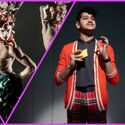
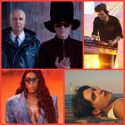
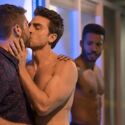
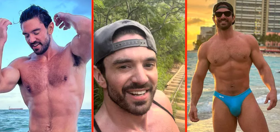

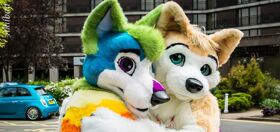

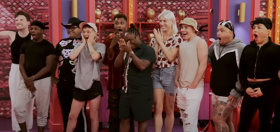

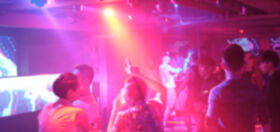

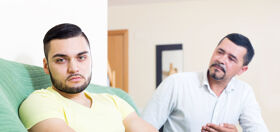
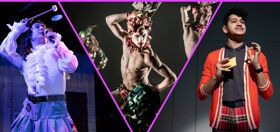

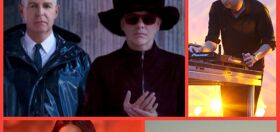




Atrius
Good luck to him. I hope he does well.
1EqualityUSA
Ted Cruz may do better in North Korea.
Glücklich
@1EqualityUSA:
This evaporation bullshit again.
Bloomberg just published an article about Air Koryo, the DPRK’s national airline.
1EqualityUSA
OK, Glücklich, thanks for the word. (Those tiny dots autoloaded onto your “u.”) Wellnowain’tthatheavensent.
1EqualityUSA
oh, wow, I tried to post the bl00mberg link and the message went “poof” (intriguing.) China is where Soviet Union was in the 30’s, as far as growth/industrialization. Fibonacci would be intrigued. (here goes….submit….)
Glücklich
@1EqualityUSA: @1EqualityUSA:
He would! Love that stuff. Have my own dog-eared copy of ET Bell’s “Men of Mathematics.” Euler’s work on pensions, though not detailed in Bell, led me on an odyssey of research and eventually into my current field.
1EqualityUSA
Given how stocked you are to be working, I would bet that you are an asset to your company. I, too, give 110 percent. In my fam, being lazy was the worst. Did you know that in beaver communities, lazy beavers get their tails slashed into ribbons, so that they can’t slap the water and find a mate. Ponder that, my son. I must get busy now, lest me tail be rendered non-communicative!
1EqualityUSA
stoked.
captainburrito
“North Korea limits and oppresses the liberty of humans. [But] in South Korea too, although it’s a democratic society, LGBT people are discriminated against and oppressed. [In this regard] unification may benefit North and South Korea.”
I doubt it would benefit lgbt much. The oppression of lgbt might unite people on both sides of the borders… if it can unite muslim, jew and christian leaders it can unite anyone.